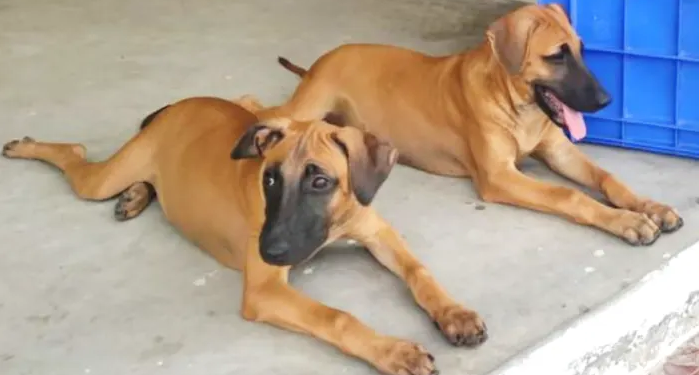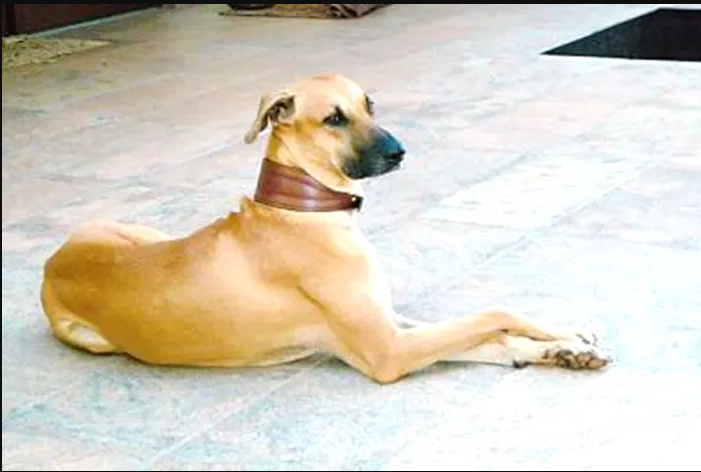A Guardian Emerges: Unmasking the Kombai Dogs
The Kombai dogs is a rare breed from Southern India known for its brave guardian skills and loyalty. Originating from Tamil Nadu, these dogs have a history of strength and devotion. This blog will delve into the kombai dog’s origin, unique traits, personality, care needs, and suitability as a family pet, shedding light on their fearless protection and silent vigilance in the shadows.
Origins and History: The Kombai Dog
A Glimpse into India’s Ancient Breed
The Kombai dog is a rare and ancient breed from the southern Indian state of Tamil Nadu. Evidence suggests this breed has existed since at least the 15th century, getting its name from a village in Tamil Nadu, Kombai, near Cumbam and Uthampalayam. Its history intertwines with royalty and rural life, serving a significant role as both hunters and protectors.
Royal Hunters and Fearless Guardians
Historically, Kombai dogs were highly looked after by Indian nobility, serving as skilled hunting companions for pursuing formidable game. Unlike breeds like the Chippiparai and Rajapalayam, known for hunting smaller, swifter prey, the Kombai specialized in tackling dangerous animals like lions, tigers, and sloth bears, earning them the title of “bear dog” or “bear hunter.”
This prowess in hunting some of the world’s most dangerous creatures brought them great acclaim. It facilitated their spread throughout the southern Indian subcontinent. As Indian nobility gradually lost power and wealth, the Kombai transitioned into a new, vital role: guarding rural farmers and their families. Their strong bark and confrontational nature make them essential guardians for rural areas.
Why Kombai is the Most Unique Indian Dog Breed
The Kombai, if differentiated with other native Indian breeds like the Rajapalayam, it highlights unique characteristics. Both breeds show immense loyalty and protective traits but vary in historical duties and physical features. For instance, Rajapalayam is known for its large size and striking white coat and was esteemed by royalty as a guard & companion. Meanwhile, the Kombai, with its strong body and hunting heritage, was bred for functionality and strength.
The Kombai’s natural resistance to diseases and parasites also underscores its adaptability to a challenging environment. This hardiness is proof of natural selection and minimal human intervention in its development, distinguishing it from more selectively bred Indian breeds.
Distinctive Features of the Kombai
The Kombai is a medium-sized breed known for its lean, muscular build and athletic physique. It features a strong presence, compact shape, elongated legs, sturdy shoulders, robust neck, slender head, and a long snout. The other excellent features are listed below:
- Coat: Short, smooth, dense, and close-fitting.
- Colors: Primarily red, tan, brown, or a combination. The coat is often darker on the back and sides than on the chest and underbelly.
- Markings: Black mask covering the muzzle and ears. White markings may appear on the chest, underbelly, and legs.
- Ears: Pendant, V-shaped, and dropped.
- Tail: Long, feathered, and often carried curved or curled.
- A ridge of Fur: A distinctive ridge of hair grows along the back in the opposite direction of the rest of the coat.
A Unique Breed Among Global Counterparts
While the Kombai shares the ridge of fur along the back with the Rhodesian Ridgeback, its overall appearance and temperament are unparalleled. The Kombai is typically smaller than a Rhodesian Ridgeback, and unlike many foreign breeds bred for specific appearances, the Kombai has a natural look that reflects its working heritage.
Loyal, Brave, and Protective: The Kombai Temperament
The Kombai are famous for their strong loyalty to their family and natural distrust of outsiders. These traits make it an outstanding protector, constantly vigilant and prepared to safeguard its dear ones.
Steadfast Loyalty: These dogs are recognized for their profound attachment to their families, creating strong connections and showcasing steadfast loyalty. They show warmth towards their family but are somewhat distant from those they don’t know.
Innate Protector: Their instinct to shield is rooted in their essence, arising from their past as defenders against animals and trespassers. They are inherently wary of anyone they view as a danger to their family or domain.
Attentive and Smart: Kombai dogs exhibit keen intelligence and are very aware of their environment. They are fast to detect any alterations or possible dangers.
Fearless Guardian: Their bold disposition makes them outstanding sentinels. They will not shy away from facing perceived dangers, even when bigger than themselves, showing bravery and resolve in defending their family and land.
Cautious of Outsiders: Kombai dogs are inherently cautious of outsiders and might show indifference or even hostility towards unknown individuals. Early socialization is essential to assist them in identifying real dangers as opposed to safe interactions.
Potential for Territoriality: Their territorial instincts can extend to other animals, including other dogs. They may display aggression or possessiveness over their space and resources if not properly socialized from puppyhood.
Training and Integration: Considerations for Family Life
The Kombai’s guarding instincts require a careful strategy for training and blending into family life.
Knowledgeable Ownership: Because of their autonomy and determination, Kombai dogs are most appropriate for seasoned owners who can offer steady, reliable training and guidance.
Initial Socialization: Continuous socialization helps Kombai dogs acclimate to people, animals, and environments, reducing fear-related aggression.
Positive Reinforcement: Reward-based training is ideal for Kombai dogs; harsh methods may lead to behavioral issues.
Mental and Physical Engagement: Due to their intelligence and energy, Kombai dogs require ample stimulation to avoid boredom and prevent destructive behaviors; activities like walks and playtime are crucial.
Supervision with Kids: Kombai dogs can be affectionate, but their size and protectiveness necessitate supervision, especially with young children, while teaching kids proper interactions.
By knowing the Kombai’s distinct nature and implementing suitable training and socialization methods, these devoted and brave dogs can evolve into beloved family members, offering constant protection and companionship for many years ahead.
Is the Kombai Right for Your Family?
Kombai dogs are known for their loyalty and protectiveness. They bond strongly with their families and can be affectionate with them and are naturally wary of strangers, which makes them excellent watchdogs.
- Kombai dogs can coexist with children in their “pack” if socialized early and are known to be gentle and tolerant with them.
- Kombai dogs can be aggressive towards other animals without proper socialization as puppies. They may coexist with other pets if socialized early but often thrive as the only dog in the family.
- Intelligent yet independent, they can be challenging to train, requiring experienced owners for firm and consistent guidance.
Caring for a Kombai: Nutrition, Exercise, and Grooming
Nutrition
Kombai dogs need a protein-rich diet with fresh meats and vegetables for balanced nutrition. Home-cooked meals are best for customization but must meet nutritional requirements.
Important Considerations:
- Steer clear of commercial dry dog food since it frequently includes fillers and synthetic additives that might not satisfy Kombai’s dietary requirements.
- Avoid giving them foods high in fat, salt, or sugar.
- Foods such as chocolate, onions, garlic, and some artificial sweeteners are harmful to dogs and must never be offered.
- Consuming too much fatty meat and dairy products may result in digestive problems or increased weight.
Exercise Requirements
Kombai dogs are lively and spirited, thus needing considerable exercise to remain joyful and fit.
Exercise Suggestions:
- Daily Walks: Strive for at least one extended walk each day to fulfill their desire to run and discover.
- Play Sessions: Involve them in play activities that include running and retrieving to assist in energy expenditure.
- Cognitive Engagement: Include tasks that mentally stimulate them, like training exercises or puzzle games, to avoid monotony.
- Tug-of-War: Kombai dogs delight in playing tug-of-war, which additionally aids in developing their jaw muscles.
- Outdoor Time: Kombai dogs thrive with ample outdoor time, allowing them to roam and explore in a safe environment. A large, fenced yard would be ideal for providing them with the necessary space.
Grooming
Kombai dogs have short, dense coats that are comparatively easier to groom than any long or medium-coat dog breed.
Grooming Routine:
Brushing: Groom their coat twice weekly to eliminate loose fur and grime.
Bathing: Bathe them with shampoo designed for dogs every 4-6 weeks or as necessary.
Ear Hygiene: Regularly inspect their ears for any indications of redness, swelling, or discharge. Use a veterinarian-recommended ear-cleaning solution to clean their ears.
Nail Cutting: Cut their nails as necessary, avoiding cutting too deeply.
Suggestions for Maintaining the Happiness of Kombai Dogs:
Training: Involve them in regular training with positive reinforcement strategies to direct their intelligence and energy.
Socialization: Introduce them to different individuals, animals, and settings early on to avoid fear or hostility towards unfamiliar faces.
Play and Love: Set aside time for play and love to enhance your connection and offer them mental and emotional engagement.
Routine: Schedule a consistent feeding, exercise, and playtime routine to offer them structure and stability.
Cognitive Engagement: Stimulate their intellect through interactive games, puzzles, and training activities to maintain their mental acuity.
Adhering to these care and maintenance tips will help your Kombai dog flourish and lead a joyful, healthy life as a beloved part of your household.
Is the Kombai Right for You? Pros and Cons
Pros of Owning a Kombai:
- Loyalty: Kombai dogs are known for their unwavering loyalty to their families.
- Protection: They are naturally protective and will fiercely defend their loved ones.
- Low Grooming: The Kombai’s short coat requires minimal grooming.
- Health: They are generally a healthy breed with a natural resistance to diseases and parasites common in southern India.
Cons of Owning a Kombai:
- Potential Aggression Toward Strangers: They are naturally cautious of strangers and may exhibit aggression if not properly introduced.
- High Exercise Needs: As a working breed, Kombai dogs require a lot of exercise and mental stimulation throughout the day.
- Training Challenges: They can be independent and stubborn, which can make training challenging.
Tips: Consider this before deciding on a Kombai as a pet:
- Experience: Kombais are not advised for novice dog owners because of their determined temperament and guarding instincts. They require a knowledgeable owner capable of delivering regular training and socialization.
- Lifestyle: Ensure your way of living aligns with owning a dog, which requires plenty of exercise and mental engagement. A Kombai is ideally matched with an energetic owner willing to offer numerous chances to run and engage in play.
- Dedication: Owning a Kombai requires a long-term commitment. They can survive for as long as 15 years, so be ready to offer them the necessary care throughout their whole life.
- Living Environment: Kombai dogs require room. Though they can adjust to living in an apartment, they are more ideally suited for a house with a spacious yard.
- Socialization and Training: Early socialization and training are essential for Kombai dogs; enroll in puppy classes and expose them to various people, animals, and environments early on.
- Allergies: Kombai dogs are known for shedding, so if you’re allergic, this breed is not for you.
A Faithful, Courageous Ally: The Kombai
This rare breed from Tamil Nadu, India, is known for its loyalty, guarding instincts, and bravery, serving roles such as hunting and livestock protection. A Kombai dog can be a great companion for somebody who has experience in training highly energetic dogs, reaping its complete benefits and rewards.
Maintaining native breeds such as the Kombai is essential for future generations. These dogs signify a crucial aspect of India’s cultural legacy, reflecting centuries of history and tradition. By backing conservation initiatives via adoption, education, and ethical breeding methods, we can ensure that these remarkable creatures persist and play a role in India’s vibrant cultural mosaic.












Discussion about this post